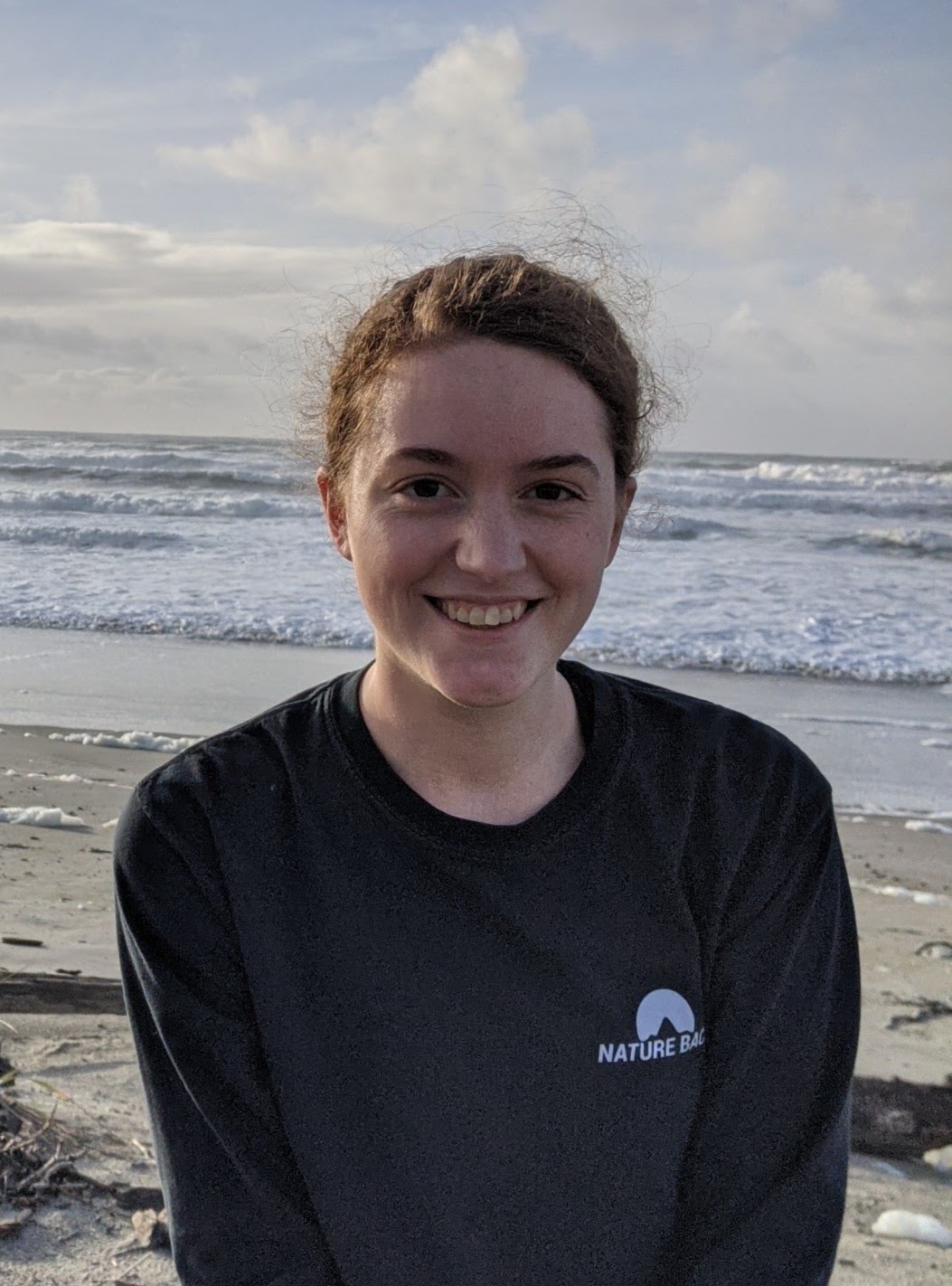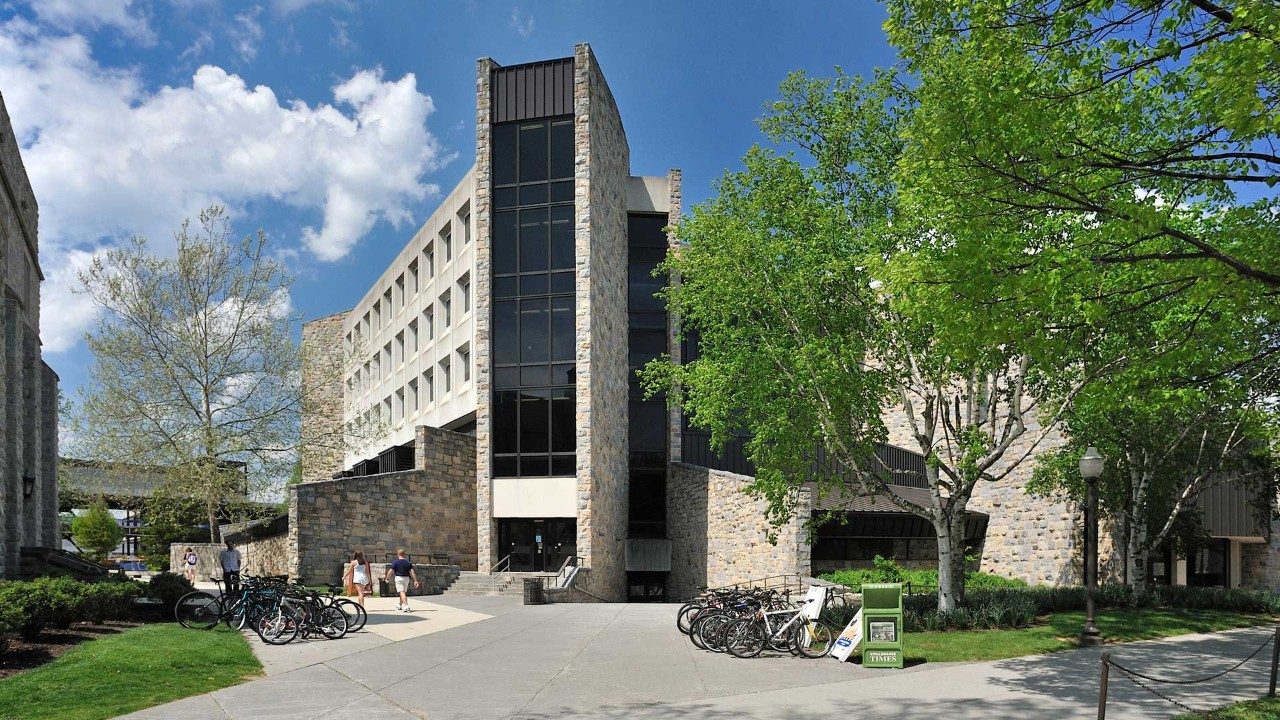At Virginia Tech, we are very lucky to have tremendous professional development support for our mathematics graduate students. This website has been designed for two main purposes: to celebrate and share the accomplishments and activities of our graduate students and to serve as a professional development resource suite. Construction of this site is an ongoing process, and we are grateful for the time volunteered by our faculty and graduate students in its creation.
Our hierarchy of support includes a graduate teaching assistant (GTA) coordinator who oversees our professional development program, faculty mentors who work closely with those graduate students who are supported on GTA, and senior GTAs (SGTAs) who provide peer support to all mathematics graduate students.

Rachel Arnold, Ph.D., GTA coordinator
Since 2015, Collegiate Assistant Professor Arnold has designed and facilitated the professional development program for Virginia Tech mathematics graduate students. She is an award winning teacher, a member of the Virginia Tech Academy of Teaching Excellence, a faculty scholar of the Virginia Tech Graduate Academy for Teaching Excellence (VT GrATE), an avid member of the Mathematical Association of America (MAA) College Mathematics Instructor Development Source (CoMInDS) community, an NSF-funded mathematics education researcher, and most importantly, a triple Hokie. Dr. Arnold earned her B.S., M.S., and Ph.D. in Mathematics from Virginia Tech in 2006, 2008, and 2012, respectively.
During her time as a Virginia Tech graduate student, she was supported on GTA and also served as an SGTA. Her experiences as both a graduate student and a GTA have authenticated her approach to advising and supporting current graduate students, especially in the areas of teaching and work-life balance.
Her philosophy for mentoring graduate students centers on creating a culture in which GTAs regularly talk about and reflect on the teaching and learning of mathematics. By focusing on the mathematics first, she provides a gateway for GTAs to develop an interest in engaging in these conversations. She also draws on a broad array of resources, including current research in mathematics education, to foster a community of teachers that shares ideas, experiences, successes, and struggles. Through this community, GTAs can develop and implement their own, personal philosophies of teaching that are grounded in experience, discussion, and reflection.
Faculty Mentors
Kelli Karcher, Andrea Carracedo, and Michael Hicks
Senior GTAs (SGTAs)

Aditya Khanna is a third year PhD student working in Combinatorics, focusing on symmetric functions and their generalizations. He likes to talk about articles that talk about math and is a sucker for cute proofs. He values communication of scientific and mathematical ideas to the general public which he does so through a semi-regular YouTube channel and a blog. Outside of math, he enjoys speedcubing, stargazing, playing Smash Bros. with friends and playing the uke.
Corinne Mitchell. I’m a 4th year PhD student focused on math education research at the undergraduate level. My master’s thesis investigated the ways that mathematicians use their own teaching and mathematical expertise during professional development workshops, and my current work focuses on the pedagogical practices of mathematicians with an eye toward making undergraduate math instruction more equitable and inclusive. My first teaching job was for the Art of Problem-Solving, where I used a puzzle-based, investigative approach to teaching elementary math. I’ve tried to bring that same curiosity and playfulness to my math courses at Virginia Tech, where I teach Math 1214 (Precalculus for Engineering) and Math 1614 (Number and Operation for Teachers). In my free time, I like backpacking, crocheting, and reading science fiction.


Jennifer Smucker is a fourth-year graduate student doing research in Harmonic Analysis and Number Theory. She focuses on taking operators in Harmonic Analysis that are well known in the continuous setting, and seeing how they behave and what can be said about them in a discrete setting. Jenny also loves to teach. While teaching several different math classes, she has worked to make her classroom one where everyone feels that they belong and that they can contribute to and do mathematics. Jenny is president of the VT chapter of the Association for Women in Mathematics and is passionate about helping women feel that there is a place for them in math. When she has free time, Jenny can be found reading, writing, sewing, playing volleyball or pickleball, hosting a podcast with her best friend, and having zany little adventures.
